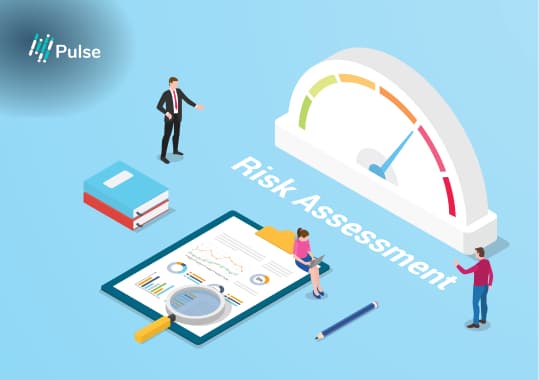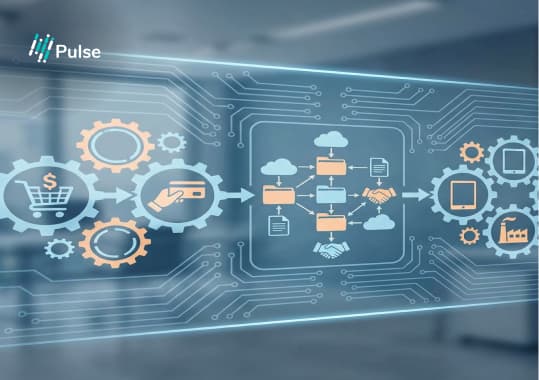The concept of cloud accounting has proven to be a transformative force in the financial sector, and has been growing rapidly, particularly within the past five years as Artificial Intelligence (AI) and Machine Learning (ML) technologies have advanced alongside financial technology (Fintech). By shifting management to the cloud, both businesses and accountants have been able to improve their working efficiency, and the whole process has completely revolutionised how financial management is approached.
Going forward, we will explore the impacts of cloud accounting, tracing its evolution from book ledgering to the cloud and its role in securing sensitive financial data. We will also delve into how this technology can empower both accountants and businesses with financial agility and foresight, shifting the roles of finance professionals from number crunchers to advisors, then finish up with a look at the future prospects that cloud accounting holds for the industry.
The Evolution of Accounting
The evolution of accounting has seen a technological movement away from paper ledgers and isolated Excel documents, to cloud based platforms that have effectively transformed how finance professionals and entrepreneurs can manage their finances. While once synonymous with manual inputs, ledgering, and the risk of human error, accounting has since shifted to computing and cloud based solutions.
This transition now means that calculations and data storage are automated, reducing errors and increasing efficiency while freeing up the user’s time to focus on other tasks. The largest breakthrough in this progression however has been through the introduction of cloud accounting, and unlike its predecessors that were efficient at data storage, accounting platforms are capable of providing valuable strategic insights to their users based on the financial data they aggregate.
For accountants, that is particularly useful, as their services have progressed with the technology from merely tracking past financial activities, to having the ability to analyse up-to-date numbers and offer advice on future financial strategies based on them. The flexibility of cloud accounting also allows for real-time financial monitoring and decision making, as opposed to past accounting methods that could only deliver financial reports based on historical data. Essentially, it allows accountants a dynamic approach to financial management that was previously inconceivable.
The Mechanics of Cloud Accounting
Cloud accounting functions via platforms that are connected through the internet. This enables data storage, access, and processing online, or in the ‘cloud’. The transition has also meant that users can access financial data and any insights the accounting tools provide from anywhere and at any time. With the possibility of multiple users being able to login and see this data, it opens up new chances for collaboration and growth.
The security measures taken to secure cloud computing are robust enough to address concerns that most users have regarding large sums of sensitive data being transferred through the cloud. These features are foundational in the tech that cloud accounting is built on, and typically breaks down into the following key safeguarding components:
- Encryption: A process that converts data into coded formats that are only readable by authorised parties, typically requiring a key to decode them. Cloud accounting takes advantage of end-to-end encryption, which means data is protected during transmission and when it is stored, and even if intercepted, will remain encrypted.
- Multi-Factor Authentication (MFA): A security enhancement that requires users to provide two or more verification factors to access a cloud accounting system. Numerous security measures have been produced to achieve MFA, normally including passwords, smartphone verification, or a biometric solution like a fingerprint. Collectively, MFA heavily reduces the risks of a third party managing to gain unauthorised access to sensitive information.
- Secure Data Centers: Cloud accounting services store information in secure data centres equipped with strict physical and digital security protocols. These measures encompass surveillance and access controls, as well as fire and flood prevention systems. The facilities also have procedures in place that ensure any ‘lost’ data can be recovered, even in cases of significant tech failures.
- Regular Security Audits and Compliance: Reputable cloud accounting providers frequently undergo security audits to ensure that their defences remain up-to-date and resilient. This also means they must adhere to international security standards and regulations such as the UKs Data Protection Act and the GDPR.
- User Access Controls: A method that restricts what can be accessed by a business’s employees, ensuring only relevant data is seen by individuals depending on their role. This reduces the risk of data breaches, whether intentional or unintentional, and ensures financial information is only accessed by those who truly require it.
The implementation of these security practices is what ensures cloud accounting continues to provide a secure service, comparable to, and typically surpassing traditional on-premises accounting systems. It should grant users peace of mind while they harness all the benefits that the cloud can bring.
We should also mention automation features before moving on, as they are a cornerstone of what makes cloud accounting so efficient. Most routine tasks that were once heavily time-consuming are automated, reducing the manual input of things like transaction recording or invoice generation and eliminating the risks of incorrect inputs. Frequent updates also ensure financial records are up-to-date, granting accountants and business owners a more detailed picture of their financial status.
Strategic Advantages for Businesses
Cloud accounting goes beyond improving how data is stored and accessed, it has effectively transformed how businesses can plan their finances and make decisions based on the provided data. This is achieved by three important factors that help drive results in the way that accountants can aid their clients, and how enterprises can manage their finances:
- Collaboration: Clouding accounting allows for real-time collaborations by enabling individuals, regardless of their geographical location, to access and analyse the same live data. It synchronises perspectives and ensures that decisions can be made based on the correct, up-to-date numbers, resulting in more cohesive and well coordinated business strategies.
- Scalability: With business growth, financial data typically becomes more complex, whether it be to additional income sources or sheer volume of metrics. Cloud accounting systems have zero issues handling growing complexities, even without requiring additional hardware or software upgrades.
- Informed Decision-Making: Data analytics equip businesses with the insights necessary to make informed operational and financial choices, and will typically shine in scenarios where underperforming outlets can be pinpointed for improvement, or for making strategic adjustments that can improve cash flow.
Navigating Challenges and Future Prospects
Any kind of transition within a business will bring challenges with it, whether it’s management, relocation, or in this case, a computing one. Typically security concerns and a need for new skills are the most prominent issues, however these problems can be overcome effectively if the correct approach and right mindset is adopted.
- Overcoming Challenges: In most cases it is worthwhile to invest in staff training to ensure both security measures can be met, and also that any system you choose to operate with is used to its full potential. By choosing a cloud accounting solution that is known and reputable, you can also avoid any troubles involved with encryption security.
- Future Prospects: The future looks promising for cloud based accounting, with AI and advanced analytics playing their roles as tools for accountants and businesses, as opposed to outright replacements. Taking advantage of cloud accounting to free up time and focus on other important tasks like improving client relationships will be what continues to spur competition between firms.
- Analytics: The sophisticated data analysis provided by cloud accounting enables businesses to forecast numerous financial trends, optimise their processes, and most importantly, make decisions about growth based on real-time data. Advanced analytics effectively gives businesses a lens through which they can maximise their cash flow and reduce losses while they are at it!
Parting Thoughts
The tools that accountants have access to today have brought the finance sector forward in leaps and bounds, with cloud accounting having completely reshaped the responsibilities of finance professionals and effectively revolutionised the strategic capabilities of all businesses. With the emphasis now being on real-time collaboration resulting in superior decision making, cloud accounting has established a new benchmark in financial management. It enables businesses to react quickly, and accountants to give advice based on insights that could not have been gleaned during the days of manual bookkeeping.
Looking ahead, it is evident that adopting cloud accounting is going to be completely necessary for any business or professional that is looking to gain a competitive advantage for their future.
Pulse can Help You with Your Finances!
Our AI driven fintech, Pulse, has been designed to integrate with your Open Accounting and Open Banking software, offering businesses and finance professionals a comprehensive view of their financial health through our intuitive dashboard. Our accounting tool not only aggregates real-time financial data from various sources, but presents them in easy to understand formats so you do not miss any insights! Sign up to Pulse today and empower yourself with detailed, visual representations of your financial metrics.
Related Blogs


